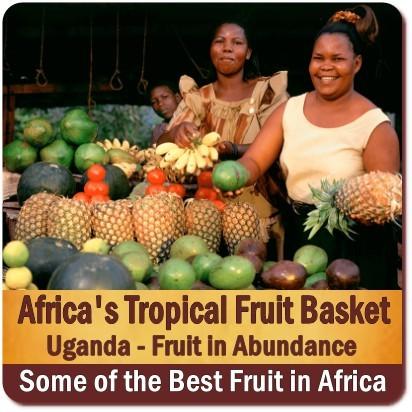Practical Survival Tips for Vegans or Vegetarians on Safari in Uganda or Rwanda.
Practical Advice for Surviving as a Vegan or Vegetarian on Safari

Tips for Surviving as a Vegan or Vegetarian on Safari in Uganda: You can go on a safari and maintain a vegan or vegetarian diet. While traditional African cuisine often includes meat and fish, options are available for those following a plant-based diet, especially in more upmarket and midrange lodges and hotels catering to specific dietary needs.
To ensure a successful vegan or vegetarian safari experience, working with an informed tour operator such as Kabiza Wilderness Safaris, where we n help arrange accommodation and meals that align with your dietary preferences, is recommended. Upmarket lodges are generally more knowledgeable about vegan and vegetarian diets and can provide suitable meal options.
When communicating your dietary requirements to us while we plan your safari, it’s essential to be specific about your nutritional needs. This will help us make necessary arrangements and ensure your meals are prepared without animal products or by-products.
It’s worth noting that the local spice Royco, which is commonly used in Ugandan cuisine, may contain beef or chicken extract and MSG. So, informing the lodge or restaurant staff about your dietary restrictions is advisable to avoid unintentional use of such ingredients.
As you mentioned, Gorillas thrive on a plant-based diet in the heart of Africa. They are a testament to the fact that sustaining a healthy and robust existence is possible without consuming animal products.
Is Surviving as a Vegan or Vegetarian on Safari Possible?
Tips for Surviving as a Vegan or Vegetarian on Safari in Uganda: You can survive as a Vegan or Vegetarian on Safari in Uganda if certain precautions are taken.
Most fruits and vegetables are grown organically, which is an added plus. Uganda – Rwanda has a variety of fresh fruits and vegetables that will delight your palate. At times, Broccoli and Cauliflower may be harder to find since they are not a part of the regular Ugandan or Rwandan diet. Still, they are grown here and are found in larger supermarkets.
The added plus is most fruits and vegetables are grown organically. Uganda – Rwanda has a variety of fresh fruits and vegetables that will delight your palate. Broccoli and Cauliflower may be harder to find since they are not a part of the regular Ugandan Rwandan diet. Still, they are grown here and can be found in larger supermarkets.
Chinese and Indian restaurants abound in Uganda, and Rwanda has menus with many vegetarian items on their menu list that are nutritious and tasty.
 Tips for Surviving as a Vegan or Vegetarian on Safari in Uganda:
Tips for Surviving as a Vegan or Vegetarian on Safari in Uganda:
If you wore a sign saying “I’m Vegan,” most people in Uganda would likely not understand what that means. In some restaurants, you might be politely told that vegan options are unavailable, as they may think you’re requesting a specific menu item. It often requires a brief explanation or “mini-education” to convey your dietary preferences effectively. However, in most cases, you will be served a meal that aligns with your needs.
When booking your safari, inform the lodge of your vegetarian or vegan preferences. This allows them to make the necessary arrangements and cater to your dietary requirements. Upon arrival at the club, your driver-guide can provide last-minute advice to the kitchen staff regarding your meals.
It’s important to note that even vegetarian dishes in Uganda may be prepared in ways that include animal-based products. One standard method is using Mchuzi Sauce-based enhancers, which can contain beef or chicken. To avoid this, you can request that no Royco or other Mchuzi mix containing animal products be used in your meals.
Additionally, be mindful of food enhancers that may contain MSG-based additives commonly found in salts like Aromat. Avoiding these enhancers and communicating your preference for meals without MSG or other food additives is best.
Despite these considerations, it is entirely possible for vegetarians and vegans to not only survive but also thrive in Uganda or Rwanda. Many locals, even if they are not vegetarians or vegans, consume vegetarian meals due to the affordability of meat. Beans, widely used and prepared in delicious ways, can be a nutritious and satisfying option for plant-based eaters.
More Tips for Surviving as a Vegan or Vegetarian on Safari in Uganda

If you’re a vegan, breakfast options in Uganda often include a fruit platter. While some people may enjoy this, you prefer a more substantial meal. Fortunately, Uganda offers a variety of delicious and juicy fruits such as mangoes, pineapples, watermelons, papayas, and bananas. The quality of bananas and pineapples in Uganda is often exceptional.
Surviving as a vegetarian or vegan in Uganda or Rwanda is entirely possible and is not uncommon. You can delight in the natural fruits and vegetables found in these countries. Avocados, locally referred to as Ovacados, are particularly worth trying. Most fruits and vegetables purchased from local markets and roadside vendors are honest and organic. Many small-scale farmers use natural fertilizers instead of costly chemical alternatives. Some malls in Kampala even have organic growers who sell their produce on weekends. Uganda exports significant organic fruits and vegetables to Europe, although less to North America.
Soy milk is available in Kampala, providing a suitable alternative to dairy milk.
To ensure a successful vegan or vegetarian safari experience, it’s essential to work with us since we understand your dietary requirements and can navigate the meat-centric culture of Uganda. It would be best to place you in lodges with a history of serving vegetarians and vegans. A knowledgeable tour operator, like ourselves, will contact the clubs and hotels on your behalf, informing them about your dietary needs and even coordinating with the chef to ensure appropriate meal preparations. Clients who have traveled with us have been satisfied with the vegetarian or vegan meals in the lodges and hotels we recommend. Upmarket and moderate accommodations generally have better awareness and options than budget lodges. Contact us for a vegan or vegetarian safari experience in Uganda.
Overall, traveling as a vegan or vegetarian on a safari in Uganda requires extra planning and preparation. Still, enjoying the experience while sticking to your dietary choices is possible.




